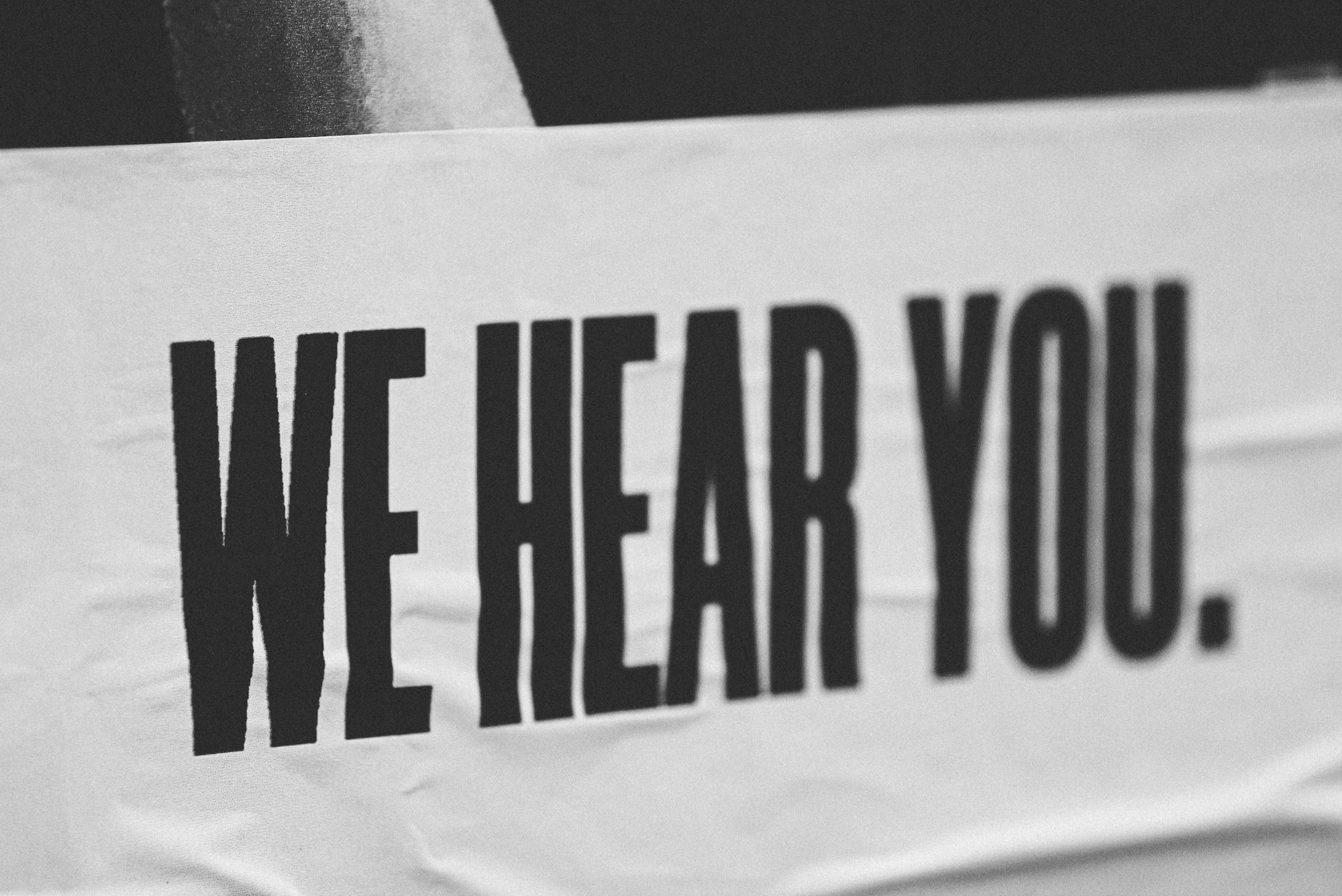Sympathy is a well worn verb. We understand it in the contexts of grief and loss, others’ adversity, and mistakes made by loved ones. It’s defined as feelings of pity and sorrow for someone else's misfortune. Feeling at someone for what’s gone wrong. It’s a normalized part of our society, and quite frankly, not well understood for the damaging effects it can have on those we extend our pity too.
When I talk about the difference between empathy and sympathy, I think of Brené Brown’s snippet on the topic (check it out here). In it she states, “Empathy fuels connection. Sympathy drives disconnection.” Sympathy is a wedge that we use to separate ourselves from others, to distance ourselves from their reality. To state, in subtle and not so subtle ways, that we have not had the experience someone else finds themselves in.
No one wants to be pitied - it’s an act that belittles and drives us farther from humankind. When I feel sorry for you, I feel distant from you.
So what does it mean to be empathetic? It’s defined as the ability to understand and share the feelings of another. To get on the ground floor of suffering, and allow ourselves to connect to the experience of someone else. I call it, “getting in the dirt”. We see another in the pit of their despair, and (as illustrated in the video linked above) we get into the pit with them. Brown states, “In order to connect with you, I have to connect with something in myself that knows that feeling.”
This doesn’t mean you have to have had the exact same experience of someone you’re extending empathy to, but rather allow yourself to share in the feelings of that experience. We all have felt betrayal, loss, sadness, anxiety and more. We all know what it feels like to be isolated, judged and pitied. Empathy breaks down those walls, and brings about organic compassion which can be lended to another from an extremely authentic and vulnerable place.
That being said, if empathy wasn’t demonstrated for you while growing up, the practice can feel foreign. Sympathy comes in many forms, such as deflecting, diminishing, dismissing, questioning, or providing advice. Coupled with humans desire to be solution-focused, and solve problems, empathy can be a trait we have to take real time to learn.
Let’s look at some examples of Sympathetic v. Empathetic responses:
Sympathy: “Uh that sucks. But your other things are going well, right?”
Sympathy is uncomfortable sitting with others’ pain, and will fight to bring on the “bright side”. Try instead: “That makes sense that you feel that way.”
Sympathy: “Just try and relax. You’re thinking too much”
When we can’t connect to the feelings that others find important, we may try to swing them to what we’re feeling about the situation (i.e. “it’s not that big of a deal.”) Try instead: “I understand how you feel”.
Sympathy: “You’re feeling better now, right? At least the time is passing and giving you time to heal.”
Asking direct questions may feel like an effort at empathy, but they can put unwanted assumptions on another's' experience. Try instead: “You must feel so hopeless right now.”
Sympathy: “Here’s what I would do in this situation.”
Wanting to give advice, or solve the problem, is a natural human tendency. But most people sharing their experiences with you aren’t looking for advice. Unless they directly ask for your feedback, try this instead: “You’re in a tough spot here, I wish you didn’t have to go through this.”
Can you spot the difference? Empathy challenges us to pull closer to another’s pain, rather than pulling away. It’s a deeply vulnerable process that feels unnatural to many of us. As a therapist, empathy is one of my superpowers. When I extend empathy to my clients’, I get to witness a physically healing experience. Body language softens, tears start to flow, and an opening up occurs.
I challenge you to begin the practice of empathy in your daily life, and see the rippling impacts of healing that begins to spread with yourself, your loved ones’ and your community.
As always, rooting for you.
Alexa Cordry, LSW, LCADC
My Help Connect is a verified, independent & factual community for providers & clients created to easily find the best help possible. Connect with My Help Connect's message through multiple platforms:
Instagram: @myhelpconnect
Facebook: My Help Connect
LinkedIn: Company Page & Member Page

